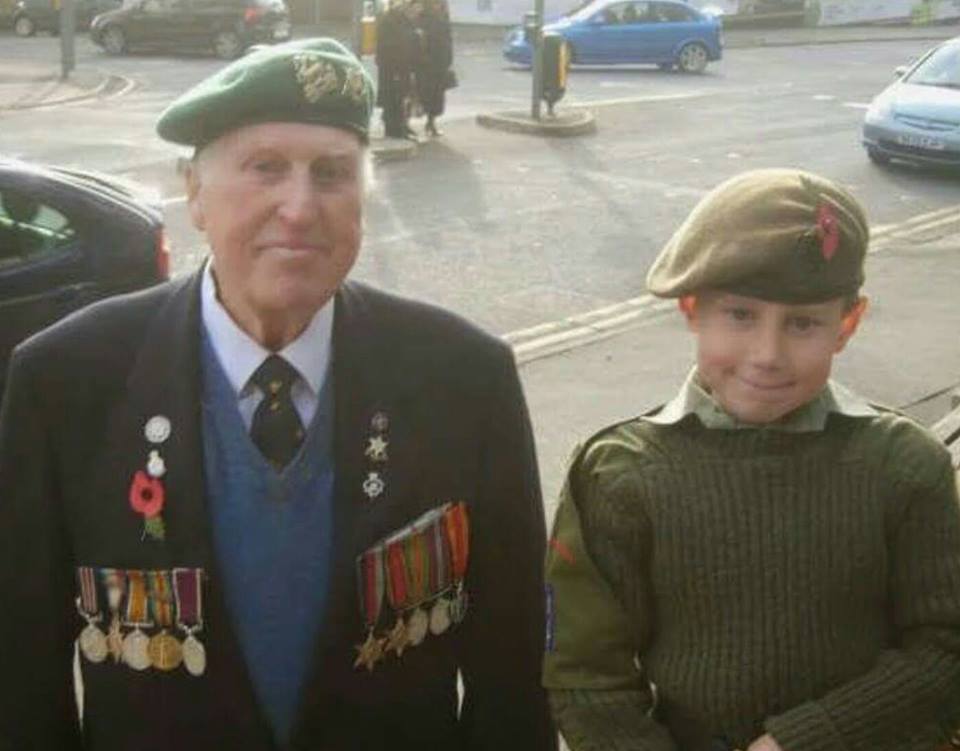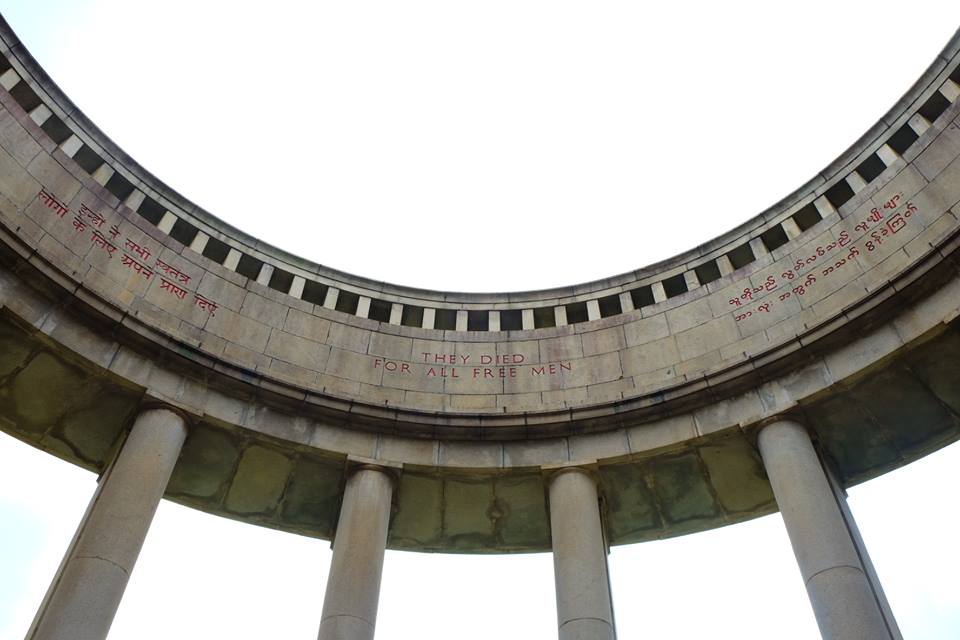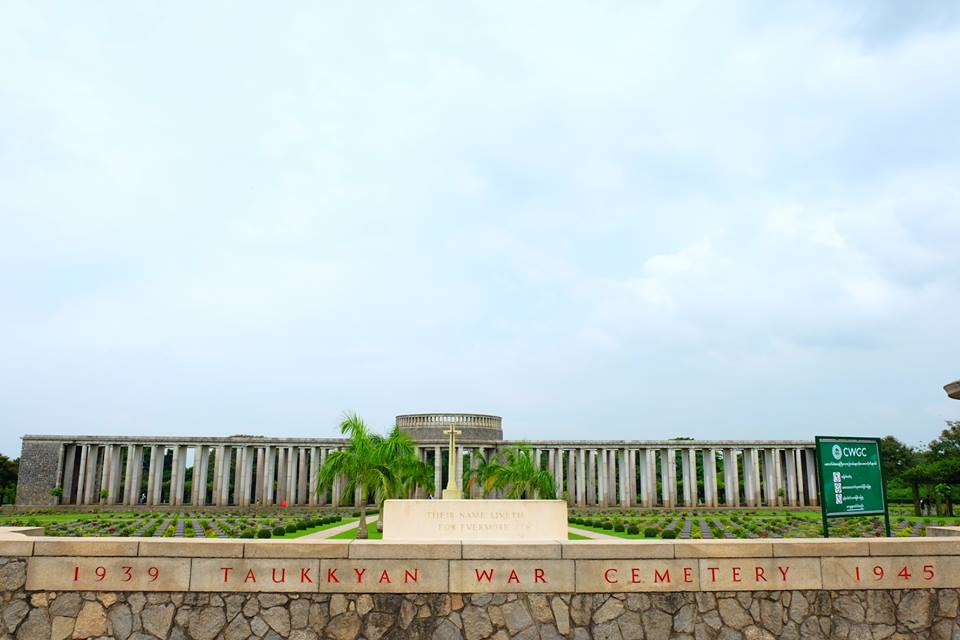A Tribute to The Late Henry Churchyard
I consider it a great honour and a fitting tribute to share a little history about local Blackwater resident and War Veteran, Henry Churchyard, as retold by a young Christiane Dowling, Age 10, following a school visit in 2007.
This Editorial was published in instalments in the July and August 2017 issues of “The Blackwater Buzz” under his own page “Churchyard Tales” where Mr Churchyard contributed regular articles relating to local history.
Our School Visit by Mr Churchyard
The month of November has special significance for the children of Class 6B in St Augustines, following a recent visit by Henry Churchyard, a veteran of WW2.
Mr Churchyard, agreed to come to our school after an appeal by our class teacher Mr Byczok, for anyone with experience of World War 2, who may be prepared to share some of their memories. I immediately thought of Mr Churchyard, a friend and neighbour of my nanny for many years. My brother Charles and I had often seen him dressed up in his medals for Remembrance Day, but knew little of what his involvement in the War had actually been. We were all delighted when he agreed.
Henry James Leslie Churchyard, joined the Royal Berkshire Regiment in 1941 at the age of 16. He relayed how he and his friend Tommy Collins, cycled over to Aldershot to enlist, giving their ages as 18. In those days, with the pressure of the Germans already massing in France, there was no verifying ages against birth certificates as would happen today, and with that the two young boys’ days in the Army commenced.
Following his initial training in Reading, Mr Churchyard served in postings in Northern Ireland, India and Burma, as well as on the South Coast between Portsmouth and Dover. We heard how Dover was nicknamed ‘Hell Fire Corner’ due to the relentless firing of shells by the Germans, 21 miles on the other side of the Channel in Calais.
In one anxious incident, he recalled how at about 8 O’clock one evening, one of their cargo ships was torpedoed by a German U boat. As the Royal Navy moved in to sink it, all troops were ordered to report to their mess decks. For Henry Churchyard, that meant he and a hundred other soldiers reporting to H1, the lowest deck, in the very tip of the ship. As the men waited in silence, with shock waves rumbling against the side of their ship, you could hear a pin drop. All they could do was watch the one stair case that may eventually lead them to safety. Then, out of the quiet, one of their group started to sing; a song they all joined in and sang over and over again. The song was Nellie Dean, and they sang remembering their wives, sweethearts and families back at home, unsure whether they would ever see them again. Fortunately, on this occasion, danger passed them by and we were delighted when Mr Churchyard sang the song for us.
There’s an old mill by the stream, Nellie Dean! Where we used to sit and dream, Nellie Dean! And the waters as they flow Seem to murmur soft and low. You’re my heart’s desire. I love you, Nellie Dean! Sweet Nellie Dean.
In 1944, following 8 weeks of intensive jungle training he was posted to Burma under General Wingate, fighting the Japanese who were trying to invade India. Whilst still only training, he remembered with a laugh the time that he jumped in to a bush only to startle …. and be startled, by a tiger leaping out from the other side!
Conditions in the jungle were harsh, not helped by the fact that it was Monsoon Season. Mr Churchyard was part of Column 47 and he told us how they had to trek through the jungle, cutting paths with machetes and never changing or even removing clothing or boots for 3 weeks at a time. Food was ‘K rations’ for breakfast, dinner and supper and they carried 8 days supply with them. Provisions, ammunition and spares were parachuted in by RAF 194 Squadron, whose planes were guided in by 3 fires lit 100 metres apart down on the ground.
As they had no tanks, 12 mules were used to carry supplies and we were shown pictures of these fondly remembered ‘noble’ animals. The mules also transported casualties and any dead on bamboo stretchers. We heard that dead Comrades were never left in the jungle, but buried respectfully by the troop, with the officer in charge marking the coordinates of the grave, so that they could be located later by the War Graves Commission for a proper Christian burial. The Lord’s Prayer was always recited and the site marked with a bamboo cross.
At the end of class, we had the opportunity to ask questions and as you can imagine, there were many. They also had a chance to look at his medals and those of his late father who served in WW1. As well as the pictures of the mules previously mentioned, we saw an image of the ‘Chinthe,’ the mythical Burmese beasts who guarded the Buddhist temples, where the troops’ nickname ‘Chindits’ originated.
It was so interesting to hear from Mr Churchyard about some of the things that we had only ever read about in books and he told us about the special respect and pride that we should have for all our servicemen and women, past and present.
Before he left, Mr Churchyard movingly told us about the words inscribed on the Kohima Memorial in Burma and there were tears in his eyes.
‘‘When you go home, tell them of us and say: ‘For your tomorrow we gave our today.’”
Following his career in the army, Mr Churchyard spent 30 loyal years with the Fire Service and then many happy years in retirement with his beloved wife Joyce, who sadly passed away earlier this year. They would have been married for 60 years.
By Christiane Dowling – Age 10
St Augustine’s School Class 6B – 26th November 2007





